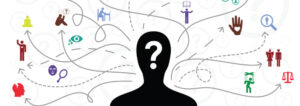The role of HR leadership in overcoming the Coronavirus pandemic
- 6 Min Read
The last few months have been a steep learning curve for professionals in HR leadership. Dave Ulrich argues that now is the time to apply those lessons to benefit employees and businesses going forward.
- Author: Dave Ulrich
- Date published: Aug 4, 2020
- Categories

At this time, every professional in HR leadership is asking: how can I help someone (starting with myself) navigate the coronavirus? The coronavirus has affected every person on earth—over seven billion people. Think of it! Other crises from world wars to famines to political revolutions to economic turmoil have affected only pockets of people, but no one seems immune to this virus. The common denominators of physical health, psychological well-being, and social support cut across geographic, religious, economic, and social borders.
Yet even with universal effect, the virus affects each person uniquely. Even in the midst of pandemic demands, uncertainty, and confusion, are there some common approaches leaders can adapt to help individuals and organizations navigate through the crisis? Could this work complement exceptional coaching insights from colleagues like Marshall Goldsmith, Tony Robbins, Paolo Gallo, Pat Wright, Lynda Gratton, John Mattone, Marcia Reynolds, Michael Bungay Stanier, Christy Whitman, and many others?
I have now written over twenty blogs, participated in over sixty webinars/podcasts, and read hundreds of thoughtful commentaries on the coronavirus pandemic, social strife, and economic downturn crises. Let me summarize this work into some simple invitations (that have been articulated by so many) that leaders might adapt to grapple with and overcome the challenges of the coronavirus.
Start with empathy
The physical, psychological, and social demands of the crisis have affected people differently, and everyone has a personal experience to share. Empathy goes beyond listening to hearing these stories; in HR leadership, seek to understand how your employees are feeling. Create a psychologically safe place to share, which may include one-on-one informal conversations, team huddles, social media forums, or town hall meetings. In these settings, show empathy by sharing personal stories and showing compassion for the feelings the crisis evokes in others. Empathy acknowledges and accepts feelings through modeling emotional transparency. Organizational empathy comes when the organization has demonstrated caring for customers and communities.
Ask: How has the pandemic affected you? How are you feeling with pandemic consequences? How are we as an organization showing increased care for our customers?
Move to learning
As many have said, a crisis is a terrible thing to waste. For those in HR leadership, discover opportunities in threats. The crisis and its subsequent social isolation have given most people a chance to reflect, ponder, and reevaluate their personal and professional lives. From these musings, people have learned about personal values, goals, relationships, and actions; and they have learned about organization reinvention of strategy, the right culture, customer relationships, or processes. Crises can be an inflection point for insight and learning. It is paramount for those in HR leadership to lead and model the learning process.
Ask: What have you learned during this crisis? What have we learned as an organization?
Clarify priorities
The question “What do I want?” is probably the most important question we will ever ask ourselves. We are able to determine what we want when we integrate personal values, strengths, passions, and interests into a definition of success that focuses our attention and actions. The answer to this question applies to personal growth (hobbies, health, values), social relationships (family, neighbors), and professional settings (roles, identity). Knowing what one wants also shapes organization priorities, allowing professionals in HR leadership to be clear about purposes, values, brand, and culture. Leaders help individuals and organizations clarify priorities by encouraging clarity about what those individuals and organizations want most.
Ask: Given current circumstances, what do you want most, which defines your success? What do we as an organization want most, which shapes our direction?
Be accountable for action
The virus has created unparalleled uncertainty and inevitable confusion. Uncertainty can often lead to false hope or despair (giving up hope); confusion can often lead to indecision that stymies progress. When we take accountable actions, we are able to harness uncertainty and conquer confusion. Responding to uncertainty, one organization put in place this pledge: think big, test small, fail fast, learn always. Testing small means making micro choices, then being accountable to quickly evaluate these choices. Testing small allowed the organization to progress even during uncertainty through small steps forward.
Ask: What can you do now to make progress? What can we as an organization do now to explore new opportunities?
Connect with others
Research has shown that loneliness has the same impact on physical health as smoking fifteen cigarettes a day, or morbid obesity, or high blood pressure, and can shorten life span by five years. Loneliness also leads toward mental health challenges such as depression, anxiety, and low self-worth. The study of loneliness was of concern (especially to Gen Z-ers and millennials) before the social distancing edicts of the global pandemic. Now the topic is more concerning. Loneliness is a biological imperative like hunger. When one feels hungry, one must eat. When one feels lonely, one must connect. Loneliness is the subjective outcome of social isolation, but it is not a requisite outcome. While the pandemic requires social distancing, it does not necessitate social isolation. Leaders help individuals working remotely feel connected by having regular team check-in calls, doing FaceTime hellos or Zoom gratitude moments, sharing personal experiences during zoom meetings, encouraging a buddy-system for personal connection, and making personal calls to individuals. While face-to-face interactions bolster relationships, technology-enabled contacts can also help people feel close to each other, cared for, and valued.
Ask: Who can I reach out to today to connect and serve? As an organization, how can we create an environment of caring?
Savor the moment
Even in the midst of paralleled physical, emotional, and social demands, pausing and savoring the moment can help us navigate uncertainty. Notice with gratitude what is good, beautiful, and right around you as an anecdote to the pandemic malaise. Research has shown that expressing appreciation or gratitude helps people feel more positive emotions, relish good experiences, and deal with adversity. Savoring the moment also means learning from but not living in the past and determining and not just daydreaming about the future. Leaders become meaning-makers when they are grounded so that they can help others feel better about themselves.
Ask: Who can I thank today? How can we create an abundant organization where we focus on what is right?
While each person responds differently to similar pandemic demands, these ideas might guide leaders as they help individuals and organizations navigate this (and other) crisis. I hope in the coming years, everyone in HR leadership will look back on these difficult times with a sense of awe at the insights and opportunities we gained from grappling with and overcoming our challenges.









